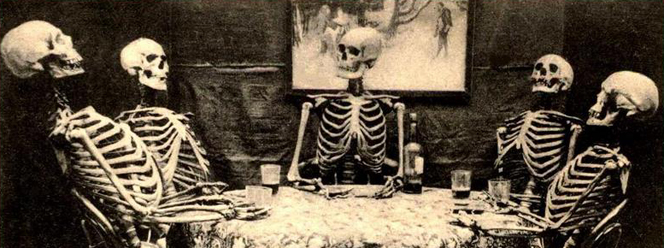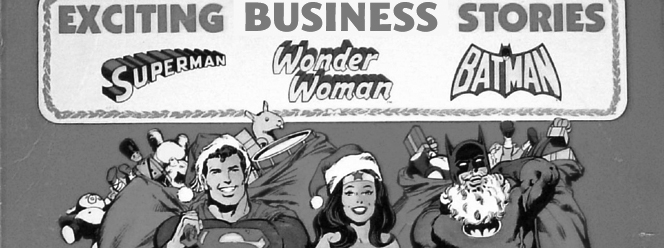
by Tara Joyce | Oct 22, 2010 | Innerpreneurship

I don’t believe in plans. But planning is essential.
Plans involve making educated assumptions on what the convenient future could entail for your business. But why plan for a future that isn’t going to happen the way you planned it to? In most instances, people think predicting the future is hogwash, but strangely not when it comes to business.
Planning involves educating yourself on where you are going, developing a strategy for how you are going to get there, and a vision of what you want to experience along the way. You don’t need to predict the future, you just need to know there is a route.
Process, not Product
I’ve found answering these 10 questions on business planning is a solid foundation on which to build a sustainable strategy for growth.
10 Questions for Planning Your Innerpreneurial Business
A. What You’re Getting Out of It
1. Why are you starting the business?
2. What will sustain you in the business?
3. What do you need (physically, mentally, emotionally, and spiritually) for the business to optimally work?
B. What They’re Getting Out of It
4. Describe your product/service.
5. Who would want to buy your product/service?
6. What is their painful problem?
7. How do you solve that painful problem?
C. The Logistics
8. How will you create your product/service?
9. How will you get your first customer?
10. What will need to happen to take your business further?
photo credit: Brian Lane Winfield Moore

by Tara Joyce | Oct 21, 2010 | Cultural Creativity

\’\’
How Selfish. Egotistical. Narcissistic.
There is something scary about believing that wanting a Self is not selfish.
There’s something terrifying about admitting it’s our natural instinct towards a wholeness that is truly our birthright.
It makes us feel ashamed, judged, blamed. It makes us feel like helpless children.
How Evolutionary.
It’s a new movement for humans to recognize the value in having a Self. And the value in doing things in support of it.
Slowly, generation-ally, evolution-ally, we are waking to this concept. The Baby Boomers were the first batch of humans to understand that wanting a Self is a natural stage in our evolution.
And yet fifty or so years later, mainstream culture and religion still portray supporting a Self as a gluttonous and silly act.
Mock It If You Want
But the fact is We, the Baby Boomers children and grandchildren, are hungry for the truth. We are starved for messages of hope that give us permission to seek a Self. And for tools to help us experience more intimacy.
A Message of Hope
Us humans, we are inching our way towards a new vision of wholeness where we are more aware of what We can be. Slowly, we are building a culture that makes room for our Self to matter.
And by accepting our Self we are setting a rich foundation for a new kind of business, an Innerpreneurial kind of business, to take shape into a more sustainable world for Us all.
photo credit: Clara Zamith

by Tara Joyce | Oct 15, 2010 | Self/Business Growth

\’\’
The Talk
It’s not always useful.
Be careful. Protect yourself. And your work.
You know what’s best. ‘Should’ is not a reason to do anything.
Advice isn’t helpful. Premature questions and assumptions are not your friends.
Be Discerning
Sharing something special with someone who is not discerning, or when you aren’t yet ready, is a risky move.
Talk takes energy. And if we aren’t careful, talk dilutes our feelings, and our passions.
It can be helpful, so very helpful, but only with the right person, and at the right time.
Make a Container
When anything is brought to life, at first, it needs a safe container from which to grow in the world. So do your ideas. They are valuable and they need your help. Shelter them.
When help is volunteered, make sure it comes from someone who’s perspective you value, and that what they say is actually helpful.
Sometimes it’s too early for feedback.
Sometimes the advice is just incorrect, inappropriate, or ill-conceived.
You don’t have to believe everything other people think. You don’t have to believe everything you think.
Bottom Line
Do They really know more about what you are doing than you do?
photo credit: Okinawa Soba

by Tara Joyce | Oct 5, 2010 | Cultural Creativity

How much do you love them? In the business world, fantastical stories seem especially lauded.
Fast money. Overnight fame.
It just sounds so good, and so easy.
You can’t blame me for wanting it, or wanting to believe in it.
I’m a gambler by nature. After all, I started my own business. I’m all about risky choices. And I can’t help but hear fanciful success stories and want to believe them.
The problem is, I don’t. They’re bullshit.
Dreams made of speed.
Either they’re not telling me the truth, or they’re not telling them self the truth. Either way, something’s not adding up. Something stinks.
I see how quickly and easily history can re-write itself, how time can just disappear, especially when fiction is far more “impressive” than fact.
I understand, and am tempted by, the desire to re-write history. The story of speed, whether it truly applies or not, is a good and enticing one to tell. The media consistently pegs businesses and people who have worked away for 5-10 years as “overnight successes” when their brands do reach the mainstream.
And we eagerly consume such fantastical stories, selling them to our self and others.
They have an easy lure to them. They make our dreams much more convenient.
I want what I want and I want it now!
It’s nice to believe that you just need to want something bad enough. It’s nice to believe that hard work isn’t necessary. Intentions made in haste are what bullshit business dreams are made of.
Dreams made of reality.
Daily you grow, daily you take small steps, and daily you bring your business dreams to fruition.
Great businesses aren’t built on great ideas or great advisers or great publicity or great money, they’re built on great people with talent and character who are passionately committed to a goal. They’re built not on what you have, but on what you consistently do over time.
Slow, sustainable growth stories aren’t as fantastically splashy and glamorous as fast money and fame but they’re real, and the businesses built upon them last.
Time and energy is what your dreams are truly made of. But you probably don’t want to hear that story — it’s a tad long.








